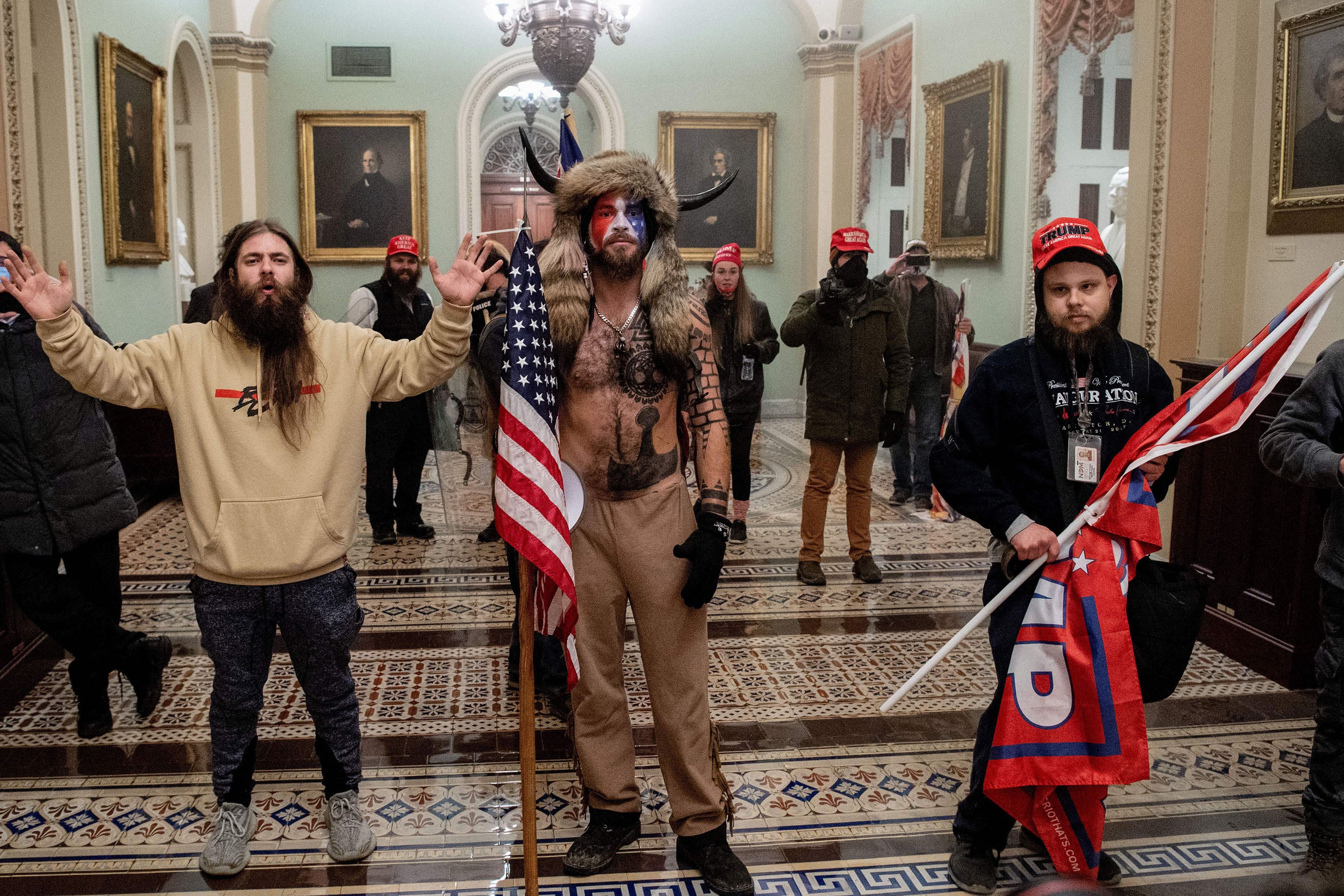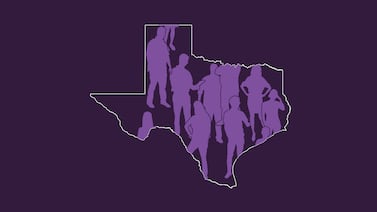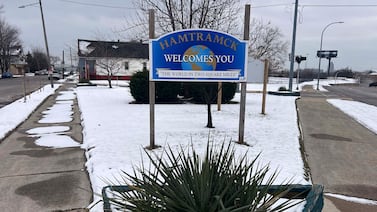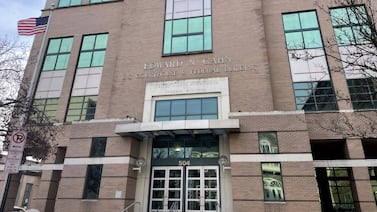Votebeat is a nonprofit news organization reporting on voting access and election administration across the U.S.
This news analysis was originally distributed in Votebeat’s free weekly newsletter. Sign up to get future editions, including the latest reporting from Votebeat bureaus and curated news from other publications, delivered to your inbox every Saturday.
Update, Jan. 20: President Donald Trump issued a sweeping clemency order applying to people charged with offenses related to the Jan. 6, 2021 assault on the U.S. Capitol. Trump commuted the sentence of 14 individuals convicted on charges related to the attack and pardoned all others. He also ordered the U.S. Department of Justice to “pursue dismissal with prejudice” of all pending indictments related to the attack.
Donald Trump will be sworn in as president again Monday at the U.S. Capitol. One of his first acts as president, he has said, will be to pardon his supporters who participated in the Jan. 6, 2021, assault on the very same building.
It’s the next step in his efforts to rewrite the history of that day — which he has described as “day of love” — and obscure his actions to overturn the results of the 2020 presidential election. His efforts will now be bolstered as he reassumes the powers of the presidency.
Trump has been vague, though, about which defendants he’s willing to pardon. Around 1,600 people have been prosecuted for their roles that day on criminal charges ranging from unlawful entry to assaulting police officers.
His soon-to-be vice president, J.D. Vance, created more uncertainty this week when he said on NBC’s “Meet the Press” that those responsible for violence that day “obviously” should not be pardoned. Vance’s remarks provoked a backlash from Trump supporters, and he muddied the waters even more with his response.
During her Senate confirmation hearings on Jan. 15, Pam Bondi, Trump’s attorney general nominee, was asked about the prospect of pardons for people convicted or charged with violent acts, and she provided no more clarity than Vance. “I’m not going to speak for the president,” she said, referring to Trump, but he “does not like people who abuse police officers either.”
Whatever Trump decides to do about the Jan. 6 rioters, there are some ongoing cases related to attempts to overturn the 2020 election that he can’t do much about: the state-level prosecutions of his supporters who participated in the so-called fake elector scheme.
This involves the Trump electors in some states that Joe Biden won in 2020, who nonetheless created and signed false electoral certificates for Trump and tried to submit those certificates to Congress in what prosecutors have described as an attempt to overturn the results.
Only a handful of cases are still ongoing. Not all of the seven states where the Trump campaign assembled slates of fake electors pursued charges. In Pennsylvania, the electors in the scheme added an important legal caveat to their document that warded off criminal repercussions. In other states, some of those charged have pleaded guilty, or have had charges dropped in exchange for cooperation.
Elsewhere, prosecutors are signaling they will continue to move ahead.
In Arizona, state Attorney General Kris Mayes, a Democrat, has said repeatedly that Trump’s election won’t affect her case. Her office charged 18 Trump allies for their roles in the scheme. Some have taken plea deals, and the rest are expected to go to trial in January 2026. This week, she asked the Justice Department to release Special Counsel Jack Smith’s files related to Trump’s alleged election subversion plot in an effort to get any information related to these cases.
“Today, my office has one of the only remaining cases that includes charges against national actors,” Mayes wrote to U.S. Attorney General Merrick Garland. “Undoubtedly, disclosing Special Counsel’s file to my office will help ensure that those who should be held accountable are.”
In Nevada, state Attorney General Aaron Ford, a Democrat, refiled charges against the six Republican fake electors there after a federal judge dismissed the case earlier over issues related to venue. Each of the six has been charged with one count of alleged forgery, and all have denied wrongdoing.
In Georgia, the fallout continues from Fulton County District Attorney Fani Willis’s personal scandal. In December, a state appeals court disqualified her from overseeing the cases related to efforts to overturn the 2020 election. She’s appealing that decision, and the outlook for the cases is unclear.
In Wisconsin, three people have been charged with 11 counts related to forgery. Ten of those charges were filed last month. The three men — including Kenneth Chesebro, a Wisconsin native reportedly among the lead architects of the fake elector scheme — previously settled a civil case filed by a progressive law firm over the same issue, agreeing never to serve as electors again.
In Michigan, Attorney General Dana Nessel charged 16 people in the summer of 2023. Since then, one has had his charges dropped in exchange for cooperation. Defendants have not yet convinced the judge to drop the charges, and Nessel, a Democrat, has said Trump’s reelection will not impact their continued prosecution. Nessel also asked the DOJ to share its case files in its now defunct case against Trump last week.
Trump himself appears to be out of legal jeopardy.
This week, the Justice Department released Smith’s report on his investigation into Trump’s efforts to overturn the election. In it, the special counsel wrote that Trump made claims of election fraud that were “knowingly false” and said the evidence assembled against him would have been sufficient for a conviction.
But Justice Department policy barring criminal cases against sitting presidents required that the charges against Trump be dropped when he won the November election.
Among the spoils of winning the presidency, after all, is the power to put your own stamp on history.
Jessica Huseman is Votebeat’s editorial director and is based in Dallas. Contact Jessica at jhuseman@votebeat.org.




